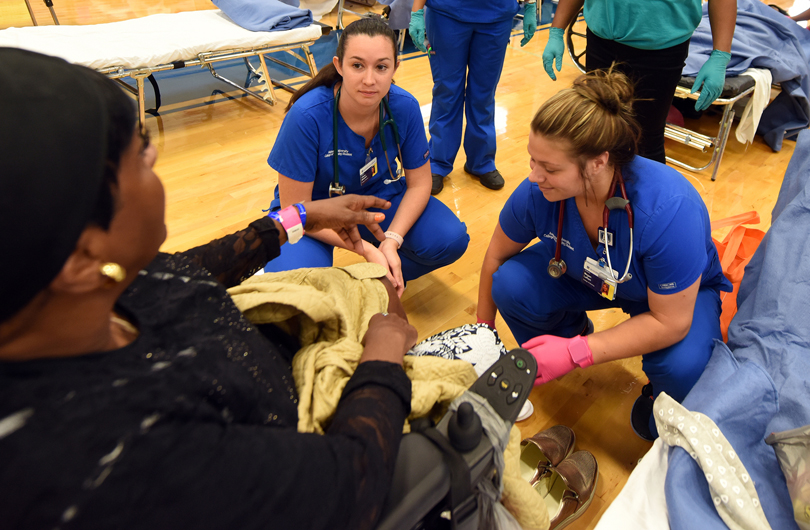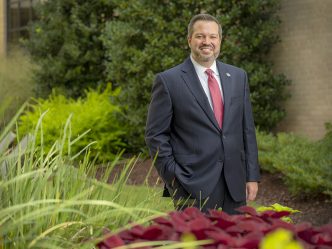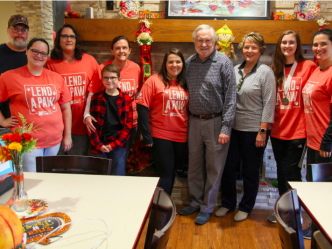When Hurricane Irma struck in September 2017, the City of Augusta welcomed evacuees affected by the storm, and the Augusta University community jumped in to help without hesitation. About 400 students, faculty, and staff signed up through the Office of Volunteer Services to serve those in need.
Augusta University volunteers cared for more than 2,000 evacuees at seven shelters in the Augusta area. The volunteers tended to evacuees’ medical needs, trained other volunteers on how to serve in a shelter environment and did physical work like loading and unloading shelter supplies.
A new Augusta University initiative hopes to ensure that volunteers are always available to respond in times of disaster or during public health crises.
“During the past two hurricane seasons, we’ve had the opportunity to provide service to evacuees, and many are bussed to Augusta and come with needs,” said Joe Webber, director of the Office of Critical Event Preparedness and Response. “Augusta University has stepped up to the plate in both instances and provides service to those communities. We are trying to make sure that we have a mechanism in place, should it happen again, that we have a group of volunteers who are already trained and vetted.”
The Augusta University Medical Reserve Corps is a group of Augusta students, faculty and staff volunteers (both medical and non-medical) working together to strengthen the safety and preparedness of our community through their willingness to be called to action in the event of a large-scale disaster or public health crisis.
Volunteers register for the MRC, undergo a background check and complete training. The training is personalized based on where volunteers are interested in serving or where they have an area of expertise. For example, volunteers may elect to join the following teams: behavioral health, logistics, leadership, pharmaceutical response, student advisory group, etc.
These teams are indicative of what each volunteer will do during a time of emergency.
“Volunteers will have a wide range of service opportunities in the event of a local disaster,” said Tina Baggott, associate vice president for Volunteer Services and Engagement. “Volunteer responsibilities could range from shelter staffing to meal prep to direct patient care and everything in between. We need volunteers from all backgrounds and professions and have found that a diverse volunteer group greatly strengthens our ability to effectively serve our neighbors in times of crisis.”
The MRC represents a partnership between CEPaR and Volunteer Services.
“Volunteer Services has teamed up with CEPaR in an effort to further ensure that our Augusta University volunteers have an organized outlet for serving during a community disaster,” Baggott said. “By working together, our teams are able to offer a streamlined approach to the disaster volunteer onboarding process, making it easier than ever to be ‘ready to serve.’”
For students, the MRC provides an opportunity to gain insight on future career opportunities, networking and to earn service hours. Faculty, staff and student members of the MRC will have an opportunity to help their community in times of need.
“We know bad things can happen,” Webber said. “Having a group of people that we can call on to help is invaluable. With the MRC, there are endless possibilities to provide service to whoever needs it.
Make a difference in your community.
Learn more about the Augusta University Medical Reserve Corps and how you can help in a crisis.
 Augusta University
Augusta University




